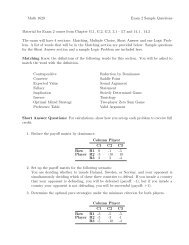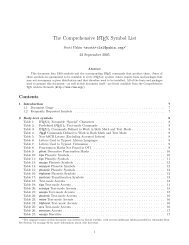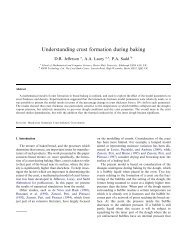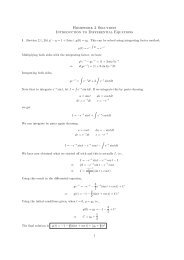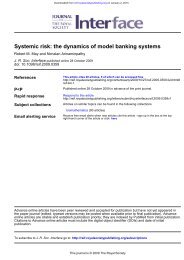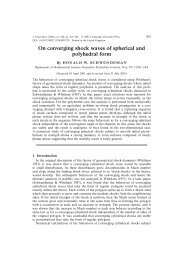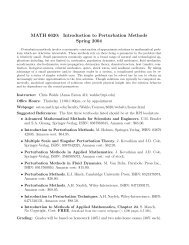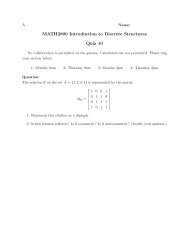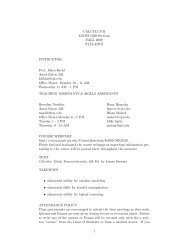ILOG CPLEX C++ API 9.0 Reference Manual
ILOG CPLEX C++ API 9.0 Reference Manual
ILOG CPLEX C++ API 9.0 Reference Manual
You also want an ePaper? Increase the reach of your titles
YUMPU automatically turns print PDFs into web optimized ePapers that Google loves.
ILOPROBINGCALLBACK0<br />
ILOPROBINGCALLBACK0<br />
Category<br />
Synopsis<br />
Description<br />
Macro<br />
ILOPROBINGCALLBACK0(name)<br />
ILOPROBINGCALLBACK1(name, type1, x1)<br />
ILOPROBINGCALLBACK2(name, type1, x1, type2, x2)<br />
ILOPROBINGCALLBACK3(name, type1, x1, type2, x2, type3, x3)<br />
ILOPROBINGCALLBACK4(name, type1, x1, type2, x2, type3, x3, type4, x4)<br />
ILOPROBINGCALLBACK5(name, type1, x1, type2, x2, type3, x3, type4, x4, type5,<br />
x5)<br />
ILOPROBINGCALLBACK6(name, type1, x1, type2, x2, type3, x3, type4, x4, type5,<br />
x5, type6, x6)<br />
ILOPROBINGCALLBACK7(name, type1, x1, type2, x2, type3, x3, type4, x4, type5,<br />
x5, type6, x6, type7, x7)<br />
This macro creates two things: an implementation class for a user-defined callback<br />
named nameI and a function named name that creates an instance of this class and<br />
returns a handle for it, that is, an instance of IloCplex::Callback. This function<br />
needs to be called with an environment as its first parameter, followed by the n<br />
parameters specified at the macro execution in order to create a callback. You can then<br />
use the callback by passing it to the use method of an IloCplex object.<br />
The class nameI that is created by the macro includes the implementation of the<br />
method duplicateCallback as required for callbacks. The implementation of the<br />
main method must be provided by the user in curly brackets following the macro<br />
invocation, like this:<br />
ILOPROBINGCALLBACKn(name, ...) {<br />
// implementation of the callback<br />
}<br />
For the implementation of the callback, methods from class<br />
IloCplex::ProbingCallbackI and its parent classes can be used.<br />
You are not obliged to use this macro to define callbacks. When the macro seems too<br />
restrictive for your purposes, we recommend that you define a callback class directly.<br />
Since the argument name is used to name the callback class, it is not possible to use the<br />
same name for several callback definitions.<br />
See Also<br />
IloCplex::ProbingCallbackI<br />
<strong>ILOG</strong> <strong>CPLEX</strong> <strong>C++</strong> <strong>API</strong> <strong>9.0</strong> REFERENCE M ANUAL 34



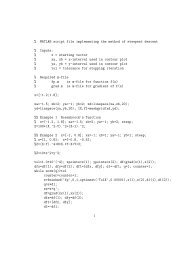

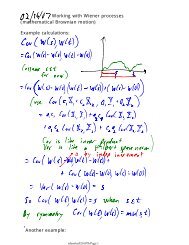

![MATH 1500 Sample Questions Exam 2 1. [3.7] A 10-ft plank is ...](https://img.yumpu.com/43861920/1/190x245/math-1500-sample-questions-exam-2-1-37-a-10-ft-plank-is-.jpg?quality=85)
